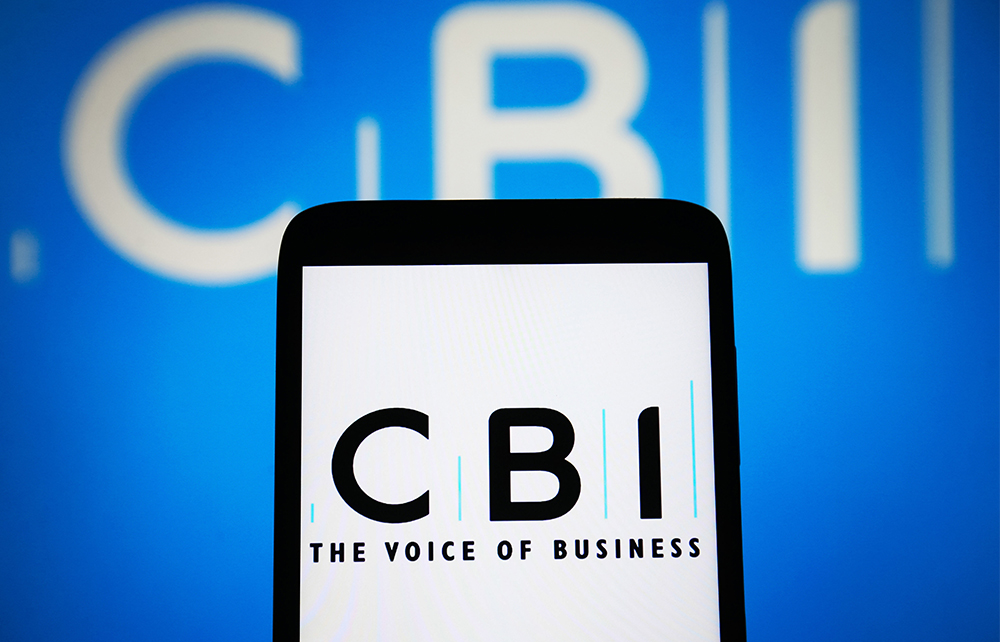Three months ago I praised Tony Danker, director general of the Confederation of British Industry, for berating the government over corporate tax rises and skill shortages: at last, I said, a CBI chief con brio. But now he’s been fired following an investigation into his ‘workplace conduct’ and three other CBI staffers have been suspended over other claims, including a rape allegation. The taint is life-threatening: if members flee, the CBI won’t survive. And if it doesn’t, say critics, not much is lost – because as a lobby group for the interests of its dominant large corporate subscribers, the UK’s leading employers’ organisation was already past its sell-by date.
Fair comment? I say nothing of the conduct complaints – other than to observe that what with allegations not long past of bullying at the Institute of Directors and sexual harassment at the Presidents Club (a charity event for corporate big-shots), the boss class may need urgent behavioural retraining. As for representing industry, gone are the days when Downing Street felt it must listen equally to the CBI and the TUC. Having favoured euro membership, opposed Brexit and turned suspiciously woke, the CBI was already diminished in Tory eyes. Boris Johnson’s unhinged Peppa Pig speech to its 2021 conference confirmed that dismissive view.
Now government relations with the CBI have officially been ‘paused’, who’s left to speak for British enterprise? In practice, the media prefers to hear from boardroom celebs – Lord Wolfson of Next, Tim Martin of Wetherspoons, even Bernard Looney of BP – rather than lesser spokesmen, while multinational giants deploy their own armies of lobbyists. At the other end of the scale, the Federation of Small Businesses and myriad trade associations do their best. But if the CBI is crippled, who will take up its neglected role of defending the struggling middle: the metal bashers, component makers and pie factories in the engine room of the domestic economy? All public reputations walk tightropes these days, but this fall is, in every sense, bad for business.
What is greedflation?
There’s a new practice afoot in the corporate world that no one will defend: ‘greedflation’. That’s the name coined by Albert Edwards, veteran market strategist at Société Générale in London, for the way companies, especially in the US, have used the excuse of rising raw material costs to push output prices even higher and generate ‘super-normal profit margins’ – in effect, profiteering from the pandemic and the war in Ukraine.
In normal cycles, profits fall when costs rise and labour is in short supply. Not this time: US Fortune 500 companies generated $1.8 trillion of profit last year from $16 trillion of revenues. For Edwards, that discovery weakens his confidence ‘that the capitalist system is working as it should’. If he’s right, stand by for fury as legislators and voters discover the meaning of greedflation.
A challenging presence …
Nigel Lawson’s banking career never quite took off. When he joined the Barclays board in 1990 and made his office at BZW (the investment banking arm where I worked), word went round that he was busy on his memoirs and did not like being wheeled out pointlessly in front of potential clients, so best not to disturb him. Later we suspected he was irked by the arrival of Sir Peter Middleton – who as a Treasury official had reported to Lawson as chancellor – in a more senior Barclays rank than his own.
But he was a challenging boardroom presence – and he went on to make a broader impact as a member (alongside Archbishop Welby and under the chairmanship of Andrew Tyrie MP) of the Parliamentary Commission on Banking Standards, established in 2012 to build on the earlier work of the Vickers Commission in trying to make banks safer after the 2008 crisis.
Both commissions favoured the ‘ringfencing’ of retail banking from riskier activities. Tyrie’s group – addressing an industry that ‘appeared not only irresponsible and incompetent, but morally bankrupt’ – pushed for ‘electrification’ of the fence in the form of powers to break up miscreant banks plus stiffer rules to make bad bosses criminally liable and to rein in excessive bonuses.
Not all their work passed into law but their interrogations were forensic and their findings – in which Lawson’s voice was strong and which we’ll no doubt revisit when UK banks stumble again – were spot on.
… and a hefty footprint
I last saw Lord Lawson with mutual friends in south-west France. Our host had fetched him 150km from his home at Vic-Fezensac, whence he commuted to Westminster via Toulouse airport. Our hostess was due to drive him back – after a feast of rabbit bouillabaisse and robust debate – and I hopped in for the ride. In his early eighties, Lawson was single at the time and his handsome 18th-century house felt unnaturally tidy and cold. He didn’t mix with expats, he told us, and ‘my only local friends are the Duc de Montesquiou and the butcher’. Ardent campaigning – in his case against climate catastrophism before he rode into the Brexit debate – can be a lonely way of life. But he was on convivial form that day. Our fine lunch also had an unusually hefty carbon footprint, I pointed out, given the distances travelled. ‘Even better,’ he chuckled.
What does it take?
This column has a proud record of championing gender equality for corporate chiefs and entrepreneurs. But still I was startled to receive an email from the editor of a well-known glossy magazine that began: ‘Dear Martin, don’t miss out on this incredible opportunity to showcase your achievements and join the ranks of exceptional women in business!… I know you have what it takes to make it on to our 2023 list.’ Do I really – or should I consult Sir Keir Starmer? Meanwhile, for the avoidance of doubt, my pronouns are still ‘he’ and ‘him’.







Comments